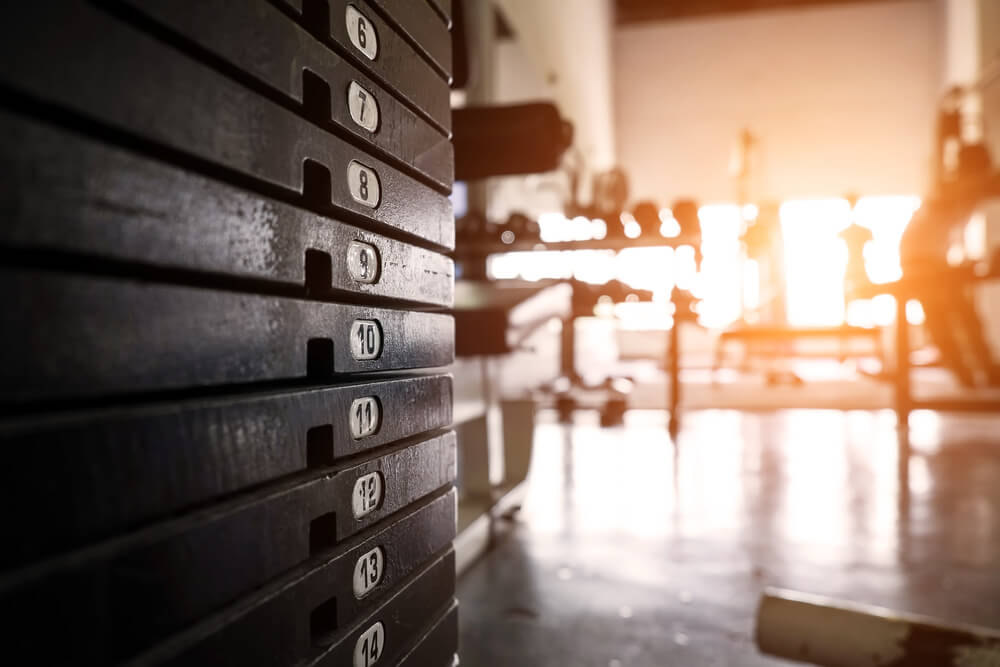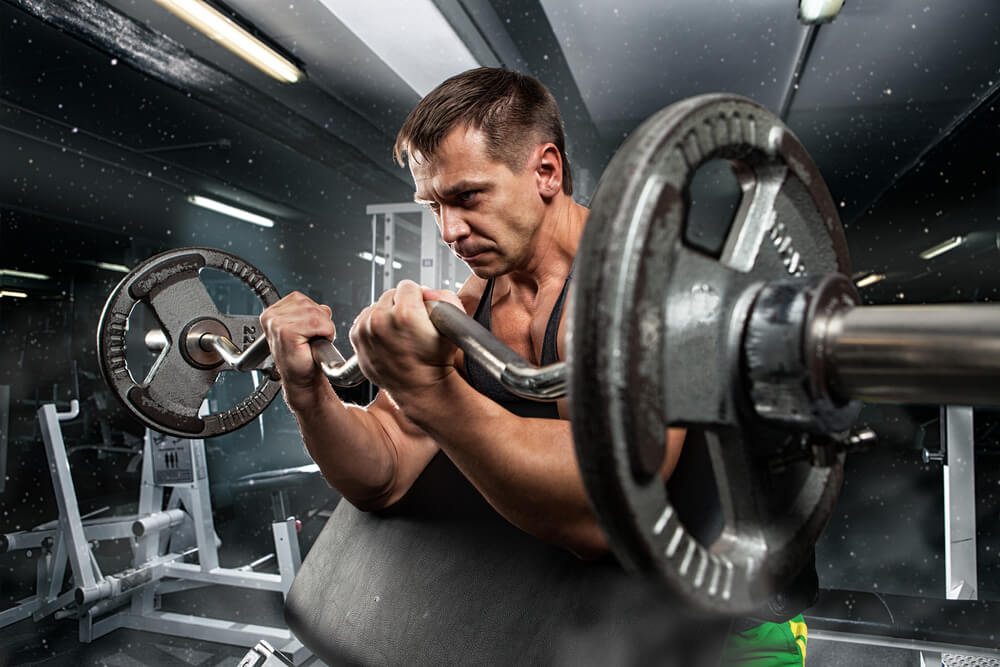
Building a muscular physique may be your biggest aspiration, but if you aren’t following these directions, all you’ll accomplish is missing the muscular mark. With these strategies on starting a gym routine, you’ll reclaim your fitness faster than ever!
Whether you’re completely new beginner weight training or just starting a gym routine, there are numerous tips and tricks you should take advantage of to ensure you are getting the most out of your workouts. If you are here and reading this, it’s clear you’re ready to start or amp up your fitness journey towards a healthier and fitter life. Follow these key steps and you’ll be on your way to achieving your goals in no time at all!
How Should I Start?
A common mistake among exercise for beginners is that they either don’t set goals or set goals that are too broad. Simply wanting to lose weight or gain muscle is admirable, but not having a focused goal in mind will make it very difficult for you to monitor your progress.
Rather than setting a broad goal and saying “Lose Weight From Your Waist In 30 Days” it is better to segment your goals.
Why?
Simple, so that you can see your progress in real time and keep up the positive momentum.
Saying something such as “I want to lose a 1/2 pound per week for the next 20 weeks” is a much more manageable approach to meeting your goal. This will allow you to gain a sense of accomplishment following small improvements in your weight. It will also help keep you engaged and interested in coming back to the gym workouts for more.
How Important Is It To Starting A Gym Routine?
In order to reach your goals, it is crucial that you create a workout routine that will let you get the results you want. Don’t overestimate your abilities or attempt to skip steps in your progress.
If you’ve never stepped inside of a gym before, there are hundreds of workout plans for beginners on the Internet that can be customized to your goals. If you are familiar with working out, it is still a good idea to find a routine that you’re comfortable with and follow it as closely as possible.
I Become Bored Very Easily. Do I Really Have To Stick To A Specific Plan?
One of the biggest hurdles you’ll find on the path to success is remaining consistent. As with any other hobby or skill, consistency will be the primary factor in your quest to see results.
The first few weeks will undoubtedly be tough. But, after a few weeks, your routine will become a habit and you’ll find yourself legitimately wanting to go to the gym instead of feeling like it’s a chore.
Perhaps the best recent advice to encourage making going to the gym a habit came from celebrity and fitness fanatic Terry Crews, who said, “go to the gym, and just sit there, and read a magazine, and then go home. And do this every day. Go to the gym, don’t even work out. Just GO. Because the habit of going to the gym is more important than the workout. Because it doesn’t matter what you do. You can have fun – but as long as you’re having fun, you continue to do it.”

How Important Is It To Maintain A Healthy Diet?
You need to make a habit out of maintaining your easy diet plans. You can go to the gym for 8 hours per day, 7 days per week, but without a proper diet you will not see the results you want.
Again, there are hundreds of resources on the Internet that can give you detailed diet plans to follow on a meal-by-meal and day-by-day case. It may be hard to change your diet overnight, so make some small changes first. Begin by drinking lots of water and adding the occasional green to your meals. Limit anything with sugar. Small changes early on will lead to big results down the road.
Now that you’ve set your goals and done your research for a routine and diet, it’s time to hit the gym.

Why Do People Stretch Before Doing Exercises?
It may not be the manliest or most fun thing to do at the gym, but stretching before exercising is a necessity. A good stretch will keep you flexible and make you less injury prone.
Studies from the Mayo Clinic indicate that, “stretching can help improve flexibility, and, consequently, range of motion in your joints. Better flexibility may improve your performance in physical activities or decrease your risk of injuries by helping your joints move through their full range of motion and enabling your muscles to work most effectively.”
The fact that stretching helps you avoid injury and can benefit your lifts makes it a no-brainer before you warm up.
It’s easy to skip and overlook, but something you should make a priority.
What’s The Point In Warming Up?
It’s always a good idea to warm up with either light cardio or light weights before you start doing your biggest lifts. A quick 10-minute warm-up will increase your heart rate and get your blood pumping so that you’re ready for your primary exercises.
This warm-up doesn’t have to be anything radical. If it’s your first time at the gym, it can be something as easy as walking on the treadmill. The idea is to get your blood and oxygen flowing so that you’ll be prepared and focused for your full workout routine.
Does It Matter If I Use Free Weights Or Machines?
Once you’ve finished your warm-up, it’s time to hit the weights. Between machines, free weights (dumbbells), barbells and fitness newcomers like the TRX, it’s easy to be overwhelmed by the weight area at most gyms.
Remember that you can use any of these types of weights or machines to meet your goals, as long as you know how to use them.
If you’re unsure of their function or how to use them correctly, ask a staff member for assistance or advice.
At most commercial gyms, especially during peak hours before and after work, you may need to substitute dumbbells for a machine or vice versa. Knowing the fundamentals of each area of the weight room will help you move through your workout with ease because you won’t need to wait for specific equipment to open up.

Are Compound Exercises A Good Idea To Use For Beginners Or Those Returning To The Gym?
To begin with, you’ll usually want to focus on a few key compound exercises with some isolation exercises thrown in. Compound exercises include such things as squats, deadlifts and bench presses. These moves work multiple muscle groups through their primary and secondary movements.
The bench press primarily works your pectoral (or chest) muscles while secondarily activating your lats, triceps and, to an extent, your core. These exercises are great for beginners as they allow multiple muscle groups to work together and will yield better results than isolation exercises.
Is There Any Reason Why Some People Like To Use Isolation Exercises?
Isolation exercises are great for training one specific muscle group and making it stronger. For example, the biceps curl will isolate your biceps and make them do all of the work during the lift.
With isolation exercises, no other muscle groups will be used to help you move the weight. Therefore, if you are looking to grow a specific part of your body you will want to use isolation lifts. Isolation exercises include biceps curls, triceps pushdowns, and hamstring curls, to name only a few.
How Important Is Form?
Now that you understand the basics of which muscle groups are worked out by certain types of exercises, it’s time to put your reading to practice. When you’re ready to begin lifting, the number one rule is that you need to leave your ego at the door. What this really means is that you should never sacrifice form for weight.
Everybody wants to do their best Arnold Schwarzenegger impression and be able to bench press 400 pounds, but forget it.
Why?
Lifting too much weight early on will only lead to injury. Take the time to learn the correct form from the start, as it promotes good habits and the safest, most effective way to perform each lift.
What’s The Best Way Of Setting Up Body Part Training Splits?
Once you have your form down, it’s important to follow your routine and avoid overtraining. Your plan should follow some type of split depending on how many days you plan on training each week.
This split can be either a full body workout every other day, or different muscle groups every day of the week. Perhaps the most common split is an upper body workout on day 1, followed by a lower body workout on day 2. No matter how you decide to set it up, you should avoid overtraining by keeping your reps and sets at a comfortable level. This will be the most effective way on how to build muscle with a split routine.
A rep, or repetition, is one complete motion of an exercise. A set is a group of consecutive repetitions. For example, you can perform 3 sets of 8 reps. This means you will lift the weight 8 times and then rest, followed by repeating the sequence 2 more times.
Rest in between sets is crucial to maintaining your strength throughout your workout. Generally, it is a good idea to take 1 to 2 minutes between sets, depending on how your body recovers and how much you want to push yourself. After a few days you’ll have a better understanding of how your body reacts to lifting and how you want to pace yourself throughout your routine so that you still have strength by the end.
Is It A Good Idea To Track Progress? How Should I Do That?
Along with tracking your rest periods, you’ll also want to keep track of the weight, sets and reps you’re performing on each exercise. This will help you track progress and let you know when it’s time to increase the weights for specific exercises.
There are a myriad of fitness apps that will let you track your progress right on your phone. If you want to keep it old school, you can always rely on a pencil and paper. No matter how you do it, tracking your progress will help keep you on track to achieving your goals. It will also provide you with better insights into your strengths and weaknesses.

Where Do I Find New Exercises To Expand My Routine?
As you progress and learn more about your strengths and weaknesses, you’ll be able to tinker with your routine to tailor it to fit your needs. One of the best ways to learn new exercises to incorporate into your routine is to simply watch what others at the gym are doing.
Don’t be afraid to go and ask the biggest guy at the gym what he does to train certain body parts. After all, everyone at the gym, big or small, is still on their fitness journey and had to start somewhere. People will always be willing to share their own personal tips and tricks with you if you’re willing to learn. At the end of the day, everybody is at the gym with the same overarching goal in mind: Get in Shape.
Important Things To Remember Before Heading To The Gym
First, set specific goals. Find or create a routine that works for you and stick to it because consistency is key to success. Be mindful of your diet. Small diet changes can make a big difference.
Conclusion
When you hit the gym, stretch to avoid injury. Then, warm up to get your body ready. Understand the fundamentals of different machines and weights. Be prepared to use compound exercises as they work many muscle groups, while isolation exercises work only one specified group.
Leave your ego at the door when starting a gym routine. Forget the massive lifts and concentrate on perfecting your form. Pace your sets, reps and rest throughout your workout. Keep track of your progress.
Listen to your body so that you can learn from your experiences and change your routine accordingly. Don’t be afraid to ask others for advice or help.
by Mark Rubino
Latest posts by Terry M (see all)
- Garage Gyms - Aug 1, 2018
- Kettlebells – Why They Should Be Added To Your Routine. - Jul 24, 2018
- Weight Belts: What Are They Really For? - May 31, 2018











[…] you want to stay lean and muscular, you’ll get the most out of your cardio by doing one to three sessions a week. These sessions […]
[…] going to dive right into the workout plan you should follow. This is a bit different from the old school lifting plans where you focus on one muscle group on each day. That might work for some people but you’re an […]
[…] to dive proper into the exercise plan you must observe. It is a bit totally different from the old school lifting plans the place you concentrate on one muscle group on every day. Which may work for some folks however […]
[…] going to dive right into the workout plan you should follow. This is a bit different from the old school lifting plans where you focus on one muscle group on each day. That might work for some people but you’re an […]
[…] going to dive right into the workout plan you should follow. This is a bit different from the old school lifting plans where you focus on one muscle group on each day. That might work for some people but you’re an […]